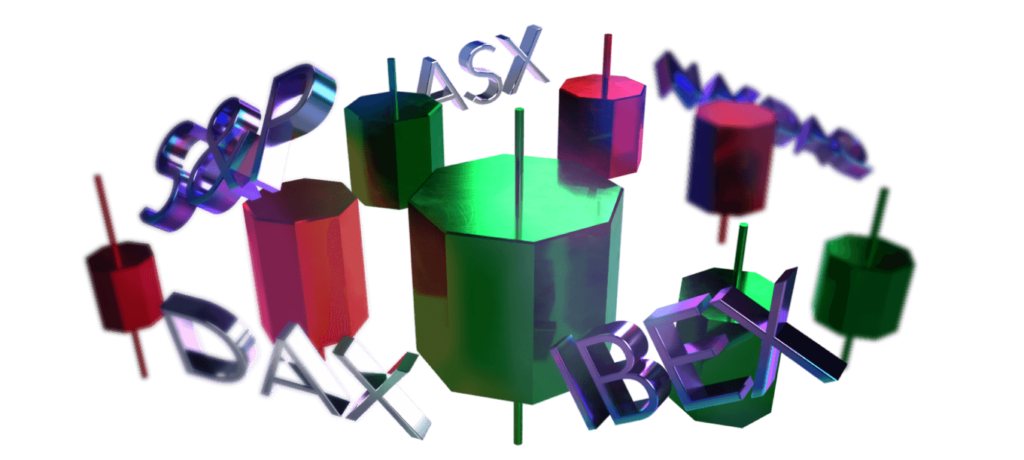Indices Trading
- Home
- Indices Trading
Indices Trading

In the information age, a golden era of technological advancement has opened up the world of investment, and trading has become available to anyone who wants to make profit. One such popular trading platform is Indices, for they offer traders vast opportunities to grow their wealth and improve their financial power.
Why Should You Trade Indices CFDs
*You Can Always Profit.
The two trading alternatives, Longing and Shorting, provide you with a fantastic opportunity to maximize your return on investment regardless of the market situation.
*You Can Trade Ina Variety Of Markets.
Trading contracts for difference allows traders to trade in a variety of markets. There are roughly 5,000 Indices available for trading in the United States. The Dow Jones Industrial Average, Dax, Nikkei, FTSE, S&P 500, and Nasdaq Composite are among the most widely followed indices around the world.
*It Improves Your Concentration
Trade indices will have an impact on your trading. It enables you to concentrate on some stocks in which you can invest and profit without having direct ownership. Concentrating on such stocks keeps you from becoming uncertain when selecting from a large pool of stocks.
*You Will Have A Deeper Understanding Of The Industry.
CFD trading necessitates making correct predictions. As a result, you must have a thorough understanding of what the companies you want to invest in stand for, as well as what their conditions and stocks stand for. Studying the market in order to have the necessary information to make correct predictions will make you more familiar with these potential investment opportunities.
How To Trade In Indices
Indices trading is highly popular not only because they enable traders and investors to gain exposure to an entire economy through a single trade, but they can also be traded in both directions, meaning it’s possible to
profit from both upward and downward price movements. The step-by-step instructions
below will help you get started quickly:
*Choose An Asset Type
The Stock index cannot be traded as a pure asset – a trader can only operate its derivative. CFDs (Contracts for Difference) are financial instruments that allow higher leverage while trading, and the opening of both long (buying) and short (selling) positions. CFDs on Indices usually have the same price as their underlying index, and follow the same trends.
*Choose A Particular Index
Depending on your investment goals and preferences, choose an instrument that will suit your trading strategy the best. We recommend the investor with less experience to study the market first, and practice trading on a demo account, before selecting an asset for real trading.
*Choose The Volume And Direction Of Your Order
The order volume should be based on your initial investment and the amount of risk you are willing to take.
*Place A Buy Order
if you believe that the index price will grow, and a SELL order if you predict its downward movement.
*Invest And Monitor Your Results.
Trading does not stop when you open a position. You have to monitor your investments and react according to the market situation.

